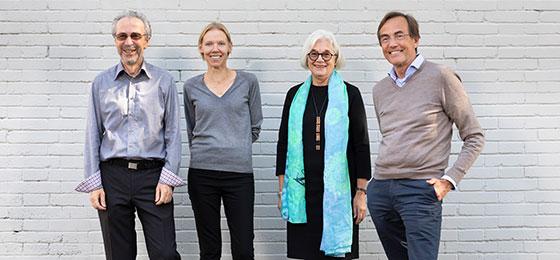International advisory board for the SNSF

The new international advisory board has started work. It consists of five re-nowned experts who are expected to think outside the box.
Foundation Council, Research Council, evaluation commissions, Administrative Offices - and now an advisory board? Does the SNSF not have enough expertise under its roof already? "Of course we do, but we would like to have a clearer idea of things beyond our backyard," says Matthias Egger, President of the National Research Council of the SNSF. "The advisory board is an independent body. It will provide us with ideas and recommendations on how we could develop the strategy of the SNSF in the long term."
Influential thinkers
The five members of the advisory board are from the United Kingdom, the Nether-lands, Sweden and Switzerland. They are all influential thinkers in their respec-tive discipline.
Pearl Dykstra, professor in Rotterdam, advises the European Commission on eco-nomic issues. The former Swedish state secretary Agneta Bladh is an expert on the growing internationalisation of research. Willi Paul was head of ABB's corpo-rate research centre until 2014, where he acquired a wealth of knowledge on re-search-driven innovation in private companies. Caroline Bassett, professor at the University of Sussex, is known for her work on the impact and potential of digital media. And Frank Miedema, professor in Utrecht, is one of the leading champions of a more open science that is aware of its social responsibilities and acts accord-ingly.
Far-reaching networks
At a meeting in Bern, the advisory board was informed about the activities of the SNSF. Its members stressed the importance of seeing science as part of an exten-sive network. Researchers, higher education institutions, funding bodies and the public are interdependent and they influence and benefit each other.
On the occasion of the meeting, the experts on the advisory board presented their first recommendations. They believe that the SNSF should promote a completely open science system which allows free access to data and results. Grantees should be further incentivised to communicate their results to the public. And the SNSF should continue to focus on gender equality, as well as on diversity in general, both among researchers and in terms of research topics. In addition, the advisory board recommends that the SNSF keep a close eye on the balance be-tween research with pre-defined topics and investigator-driven research.
Needs-oriented funding
"The advisory board is able to highlight strengths, weaknesses or gaps, and it identifies challenges that lie ahead," says SNSF director Angelika Kalt. "This helps us to achieve our goal: offering needs-oriented funding to researchers so that they can pursue their ideas at the highest level. This leads to new insights and solutions for society and the economy."
The five members of the SNSF advisory board
- Willi Paul, Consenec, Switzerland
- Caroline Bassett, University of Sussex, UK
- Agneta Bladh, Swedish Research Council
- Frank Miedema, University of Utrecht, Netherlands
- Pearl Dykstra, University of Rotterdam, Netherlands (not pictured)
International advisory board of the SNSF